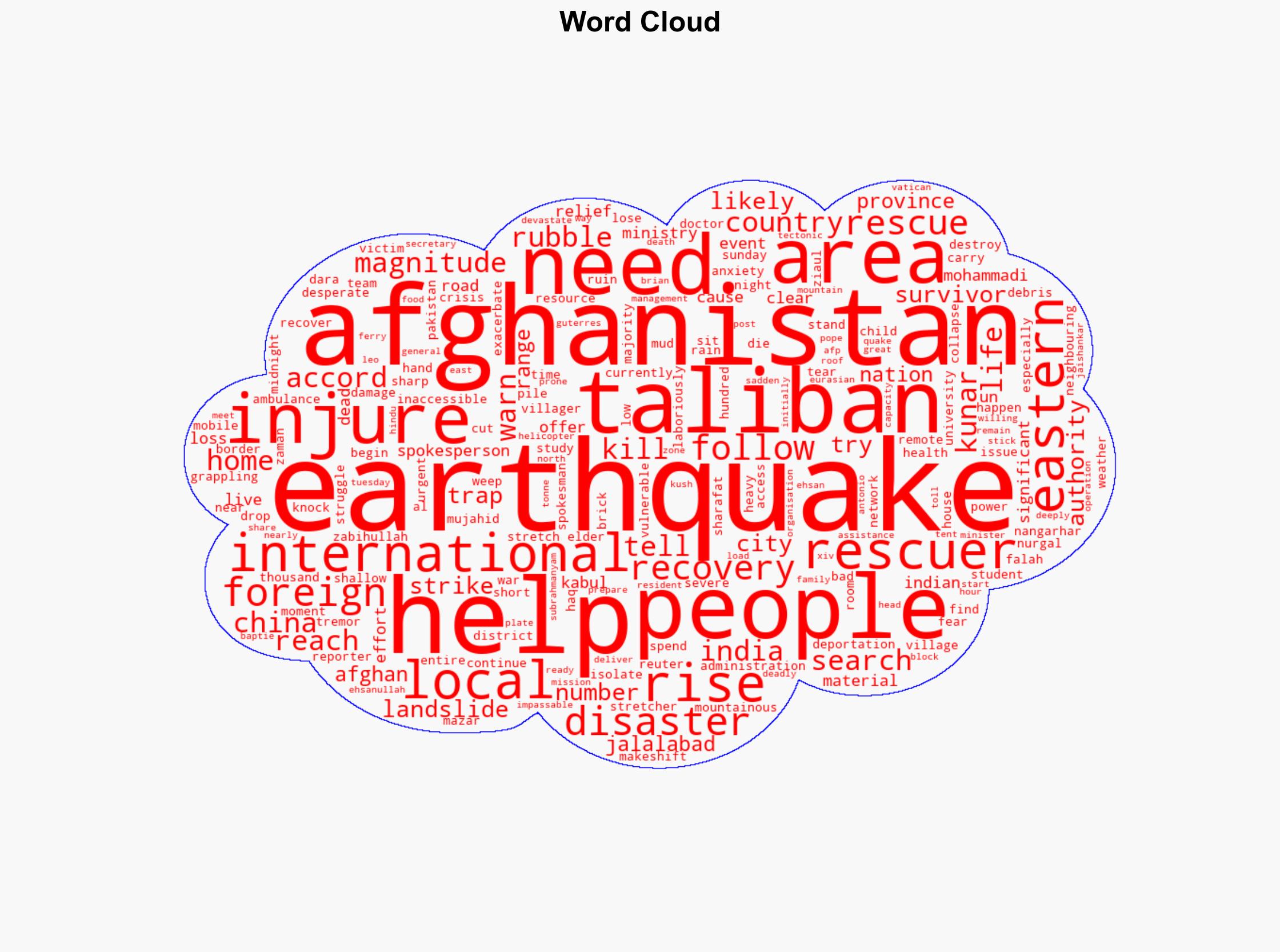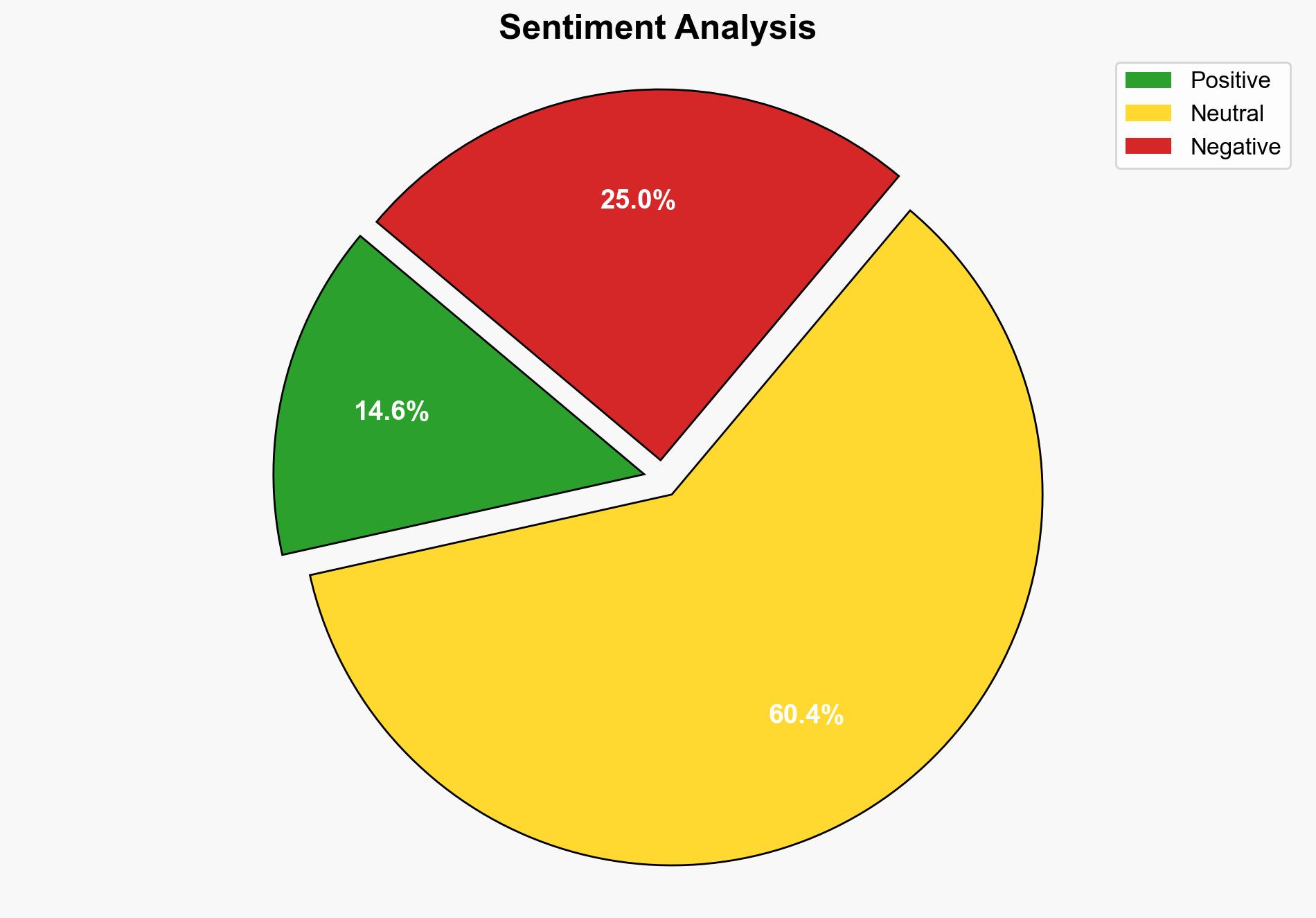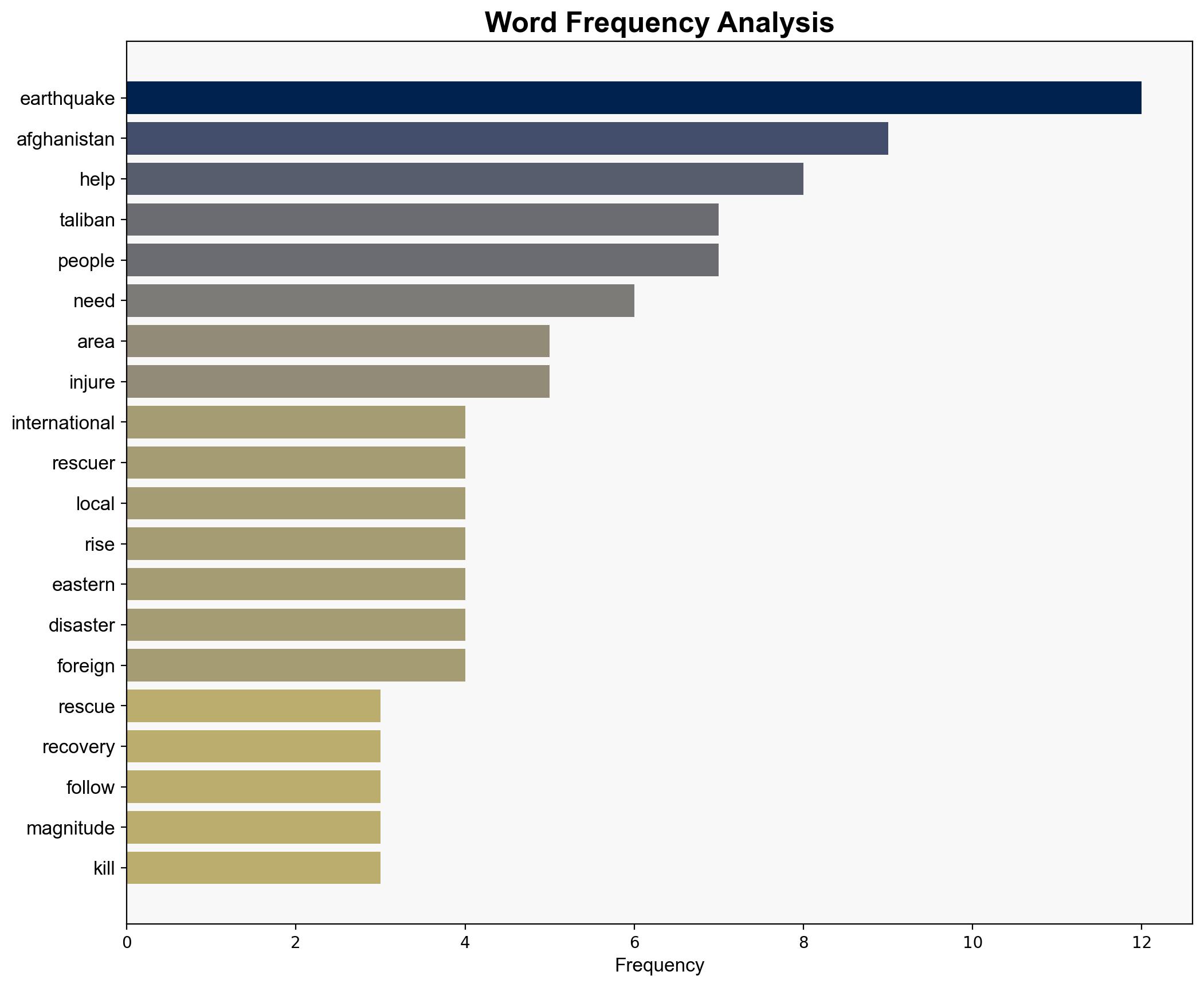‘We need urgent help’ Afghans call for help after earthquake kills at least 800 – ABC News (AU)
Published on: 2025-09-01
Intelligence Report: ‘We need urgent help’ Afghans call for help after earthquake kills at least 800 – ABC News (AU)
1. BLUF (Bottom Line Up Front)
The most supported hypothesis is that the Taliban’s call for international aid is a genuine plea for assistance due to the overwhelming impact of the earthquake and the country’s limited resources. Confidence level: Moderate. Recommended action: International agencies should coordinate with regional partners to deliver immediate humanitarian aid and assess long-term recovery needs.
2. Competing Hypotheses
1. **Hypothesis A**: The Taliban’s request for international aid is a genuine response to the overwhelming humanitarian crisis caused by the earthquake, reflecting their inability to cope with the disaster independently.
2. **Hypothesis B**: The Taliban’s call for international aid is a strategic maneuver to gain legitimacy and international recognition, using the disaster as leverage to improve their standing on the global stage.
Using ACH 2.0, Hypothesis A is better supported by the immediate need for resources and the logistical challenges highlighted in the report, such as inaccessible areas and inadequate infrastructure. Hypothesis B, while plausible, lacks direct evidence of strategic intent beyond the immediate crisis.
3. Key Assumptions and Red Flags
– **Assumptions**: It is assumed that the Taliban lacks the capacity to manage the crisis without external assistance. It is also assumed that international aid will be delivered impartially and effectively.
– **Red Flags**: The potential for aid diversion by the Taliban for political purposes. Inconsistent data on the actual death toll and extent of damage due to limited access to affected areas.
4. Implications and Strategic Risks
– **Humanitarian**: Delays in aid could exacerbate the humanitarian crisis, increasing mortality and morbidity rates.
– **Geopolitical**: The situation could shift regional power dynamics, especially if aid is perceived as politically motivated.
– **Psychological**: Prolonged suffering could lead to increased instability and resentment towards both the Taliban and international actors.
5. Recommendations and Outlook
- Immediate deployment of international aid teams to assess and address urgent needs.
- Coordinate with neighboring countries like India and China to facilitate access and logistics.
- Monitor for potential misuse of aid and ensure transparency in distribution.
- Scenario Projections:
- Best: Effective international response stabilizes the situation, reducing casualties and fostering cooperation.
- Worst: Aid mismanagement leads to increased casualties and political unrest.
- Most Likely: A mixed response with partial success in addressing immediate needs but challenges in long-term recovery.
6. Key Individuals and Entities
– Zabihullah Mujahid (Taliban spokesperson)
– Sharafat Zaman (Health Ministry spokesperson)
– Ziaul Haq Mohammadi (Student witness)
– Subrahmanyam Jaishankar (Indian Foreign Minister)
– Antonio Guterres (UN Secretary-General)
7. Thematic Tags
national security threats, humanitarian crisis, regional focus, geopolitical dynamics





